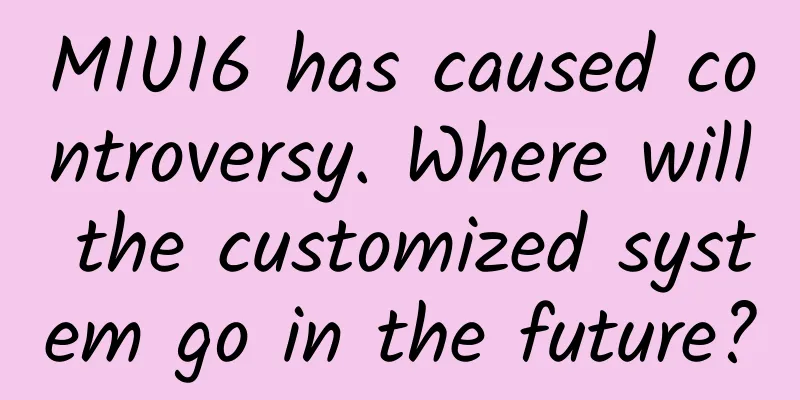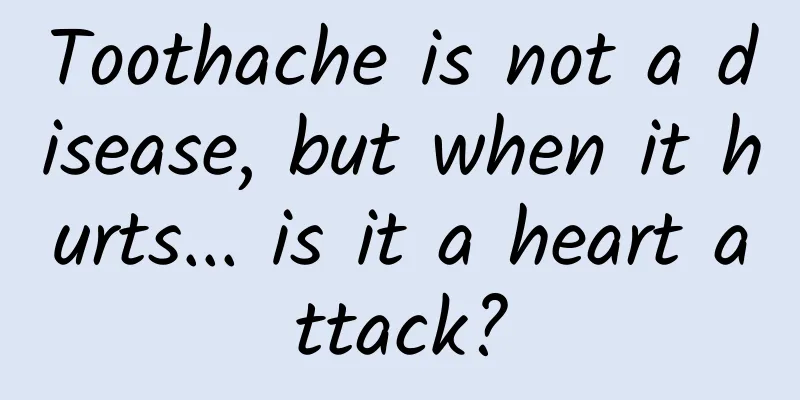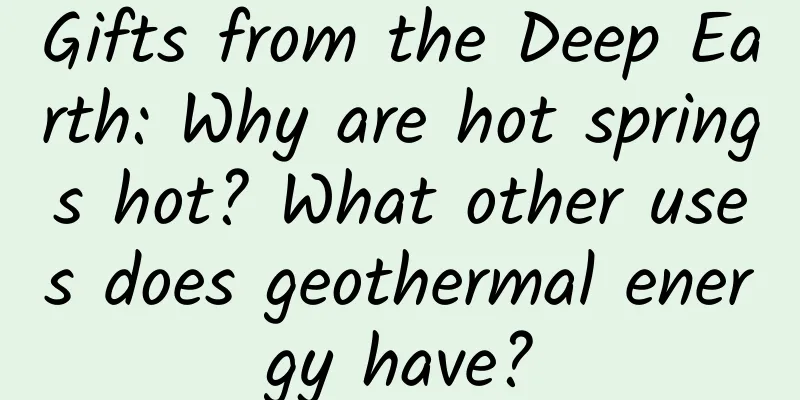"Po", "Min", "Benzene"... Do you know what these words in medicine names mean?

|
|||| Written by reporter Wang Xueying, Photo and text editor Chen Yongjie New Media Editor/David Duan (Intern) Interview experts Zhao Ning (Deputy Director and Pharmacist, Department of Pharmacy, Peking University First Hospital) When you are sick, you need to take medicine, and you need to follow the doctor's instructions. But do you know that the names of the medicines on a small medicine box actually contain a lot of "medicine knowledge" that the doctor has not told you. Do you know what the names of medicines containing "P", "Min" and "Benzene" mean? Do you know how to store medicines? ➣ ➣ ➣ The secrets behind drug names Is "999 Piyanping" the drug name, or is it "Compound Dexamethasone Acetate Cream"? When buying medicine at a pharmacy, should we say "Sibelium" or "Flunarizine Hydrochloride Capsules"? ... "What is the name of the drug?" This has always been a problem that troubles ordinary people. In fact, naming a drug is not a casual matter. For drugs, there are several concepts such as "chemical name", "generic name" and "trade name". The so-called "chemical name" actually refers to the chemical name of the active ingredient of the drug. It is formulated by the Chinese Chemical Society based on the English system naming standard for organic compounds (referred to as IUPAC) and combined with the characteristics of Chinese characters. For example, the main active ingredient of "Flunarizine Hydrochloride Capsules" (generic name) is Flunarizine Hydrochloride, and its chemical name is (E)-1-[Bis(4-fluorophenyl)methyl]-4-(2-propenyl-3-phenyl)-piperazine dihydrochloride. ▲Chemical formula of Flunarizine Hydrochloride Capsules The so-called "generic name" refers to the name of a drug that can be used in the world, such as aspirin. Its main function is to concisely distinguish drugs with different chemical structures and mechanisms of action. It is generally formulated by referring to the International Nonproprietary Name Code (INN for short). In the process of transliteration, the Chinese name should be as consistent as possible with the English name. For the sake of fluency, the long syllables of English can be shortened. It is also necessary to use the same stem, suffix and prefix to mark the same type of drugs. For simple compounds such as ether and benzoic acid, the chemical name can be used directly. ▲Example of Chinese translation of generic drug names (data source: Wikipedia map/Wang Xueying) The so-called "trade name" is the name given to the drug by different drug manufacturers themselves. It is a product name approved and registered by the State Food and Drug Administration and has a proprietary nature. In other words, under a generic name, a drug may have multiple trade names due to different manufacturers. For a drug, even if the trade names are different, as long as the generic names are the same, their main active ingredients are the same. In general, the names of drugs included in the national drug standards are the generic names of drugs. At the same time, according to the original "Prescription Management Measures", when doctors prescribe, unless a drug is newly developed and patented, in order to protect the patent right, only the trade name is used. Usually, "the generic name of the drug approved and announced by the drug supervision and administration department" is used. ▲The common names (blue boxes) mainly used in prescriptions (Photography/Wang Xueying) For example, "Flunarizine Hydrochloride Capsules" is the generic name of the drug, its active ingredient is flunarizine hydrochloride, and the name "Sibelion" is the trade name of the drug. Only the flunarizine hydrochloride capsules manufactured by Xi'an Janssen Pharmaceutical are called "Sibelion", otherwise they are not. The reason why people need to distinguish the names of medicines is that non-standard naming methods will result in the same drugs having different names or different drugs having the same name. In addition, there are also many compound preparations of traditional Chinese medicine in my country. Therefore, if the names of medicines are varied, it will easily lead to patients using medicines irrationally, affecting the safety and effectiveness of medicines. ▲Flunarizine hydrochloride capsules manufactured by Guangdong PIDI Pharmaceuticals (left), and flunarizine hydrochloride capsules, also known as "Sibelion", manufactured by Xi'an Janssen Pharmaceuticals (right) (Photo/Wang Xueying) ➣ ➣ ➣ What do those words in the names of medicines mean? Since the Chinese names of medicines are not "random", it is more intuitive and clear to learn to understand the names of medicines and simply identify the main ingredients from the names of medicines. Especially when encountering a "minor illness" like a cold, which is not surprising in the eyes of many people, it seems that everyone just buys some cold medicine at the pharmacy. This seems to be the "normal practice" of everyone. However, do you know that cold medicine is not something you can take just because you want to! Drugs containing "Pom", "Min", and "Benzene" Like "Chlorpheniramine (trade name)" (chlorpheniramine maleate tablets) or the cheapest amino Huangmin capsules, these common names contain "Chlorpheniramine", "Min" and "Benzene", which generally contain chlorpheniramine or diphenhydramine ingredients. "This type of antihistamine can effectively relieve the symptoms of nasal congestion and sneezing in the early stages of a cold," said Zhai Huiyuan, chief pharmacist of the Pharmacy Department of Nanjing Hospital of Integrated Traditional Chinese and Western Medicine, but this type of ingredient also has the effect of inhibiting the central nervous system, which may cause patients' drowsiness and sleepiness. Therefore, people who drive cars, ships, airplanes, or engage in high-altitude operations or precision instrument operations should pay special attention during medication. In addition, the side effects of antihistamines may also cause water and sodium retention and edema, which can easily induce high blood pressure and increase the burden on the heart. Therefore, patients with hypertension and asthma should also follow the doctor's advice before taking them. Drugs containing "numbness" In recent years, major pharmacies have strictly controlled a cold medicine called "Baijiahei". The reason is that this medicine is a compound medicine, one of the ingredients of which is pseudoephedrine hydrochloride. Although it can effectively relieve nasal congestion and runny nose caused by colds, pseudoephedrine hydrochloride and ephedrine only exist in stereoisomerism in their chemical structures, and ephedrine can be made into methamphetamine through simple extraction. Therefore, it is listed as a controlled drug in my country. ▲Pharmacies strictly control the sale of drugs containing ephedrine In addition to the potential dangers of drug-related crimes, drugs with the word "numb" in their generic names may generally contain pseudoephedrine as their main ingredient, which can excite the heart, relax bronchial smooth muscles, and cause peripheral vasoconstriction. It is indeed effective in relieving symptoms of nasal congestion caused by colds, allergic rhinitis, rhinitis, and sinusitis, but it can also lead to increased blood pressure, blood sugar, and intraocular pressure. Therefore, patients with hypertension, diabetes, and high intraocular pressure must follow their doctor's advice. Drugs containing "phenol" and "ammonia" Many of the common compound cold medicines on the market contain acetaminophen, also known as paracetamol, which can effectively relieve body aches caused by colds and also help the body reduce fever quickly. In the common names of Western medicines, if they contain "ammonia" or "phenol", it generally means that the main ingredient contains acetaminophen. It is understood that excessive acetaminophen can cause liver damage and abnormal kidney function, and most compound cold medicines, such as Xin Kangtai, Day and Night Baifuning, Gankang, etc., contain acetaminophen as their main ingredient. Therefore, if you take several cold medicines at the same time, it is easy to cause an overdose of acetaminophen, so you must avoid taking cold medicines repeatedly. In addition, alcohol can cause a rapid decrease in glutathione in the human body. In this case, the metabolites generated by acetaminophen cannot normally bind to glutathione, and can only turn to bind to liver and kidney cells, increasing the burden on liver and kidney tissues. Therefore, you should avoid drinking alcohol when taking cold medicines. Drugs containing the word "beauty" In addition to runny nose and fever, many people also experience coughing symptoms when they have a cold. Therefore, a main ingredient in common cold medicines is dextromethorphan. This ingredient is mainly reflected in the generic name of the medicine, which is the word "Mei", such as "Tylenol" (phenol-ephedrone-min tablets) and "Baijiahei" (the main ingredient is acetaminophen-pseudo-ephedrone-min). It is understood that dextromethorphan, as a typical central antitussive ingredient, mainly suppresses the cough center in the medulla oblongata to achieve the effect of suppressing cough. In other words, dextromethorphan suppresses cough only by suppressing nerves, so it is more suitable for patients with dry cough without sputum or frequent cough. As we all know, the reason why the human body wants to cough is because there is phlegm in the airway or lungs. Coughing is just an instinctive reaction of the human body to expel phlegm. For patients with cough and phlegm, if dextromethorphan is taken too early, it will not be conducive to the discharge of phlegm. In severe cases, it may even press the phlegm in the airway or lungs, eventually causing airway obstruction, repeated infection, aggravation of the disease, and even suffocation. ➣ ➣ ➣ Scientific medication starts with learning how to ask and read medications "Some of the claims on the Internet are a bit too eye-catching, because from the perspective of clinical pharmacy, taking medicine is a more complicated matter," said Zhao Ning, pharmacist and deputy director of the Department of Pharmacy at Peking University First Hospital. "It is not scientific to simply say that certain patients cannot take a medicine just because it contains a certain word in the name." ▲Beijing Friendship Hospital (Tongzhou Campus) Medical and Pharmaceutical Joint Medication Management Clinic Source: Beijing Friendship Hospital Zhao Ning told reporters that when patients are unsure whether a drug is suitable for them, the simplest and most scientific way is to go to the hospital's drug consultation room for consultation. "Some hospitals have a separate department, and some are right next to the pharmacy where you pick up medicine. It's not difficult to ask, and this kind of consultation is free," he said. "Especially for patients with multiple chronic diseases, or those with obvious liver and kidney problems, they may even be guided to a special pharmacy clinic to receive guidance from more professional outpatient pharmacists." It is understood that currently, pharmacy clinics in my country are divided into two categories. One is the "joint medical clinic", which means that doctors and pharmacists work together to diagnose and prescribe medicines for patients who need special medications; the other is the "comprehensive pharmacy clinic", which is currently the most important type of registered pharmacy clinic, and its consultation content is very broad. ▲The storage conditions of different medicines are different, so please read the instructions carefully (Drawing/Wang Xueying) In fact, compared to simply "looking at the name to identify the medicine", it is more important to learn to read the instructions of the medicine. Even for common diseases like colds, if the cold medicine is misused or abused, it will be harmful to health or even life. "In addition to the doctor's prescription and the pharmacist's instructions, the instructions of the medicine should also be read carefully," Zhao Ning told reporters. For patients, especially those with chronic diseases, the simplest and safest way to read the instructions is to "read them backwards" - first read the storage method, then the generic name and main ingredients, and then the precautions of the medicine. ▲Storage conditions marked on the drug instructions (Photo/Wang Xueying) It is understood that most of the drugs on the market can be stored at room temperature. However, external medicines such as eye drops, nasal drops, ear drops, lotions and mouthwashes are suitable for storage in the refrigerator. Tablets, capsules and powders are susceptible to moisture, so they are more likely to deteriorate if stored in the refrigerator. For drugs such as syrups, storing them at a lower temperature will reduce the solubility of the drug in the syrup, resulting in inaccurate drug concentration and thus affecting the efficacy. "Even for drugs with the same generic name, the storage conditions may be different if they are produced by different manufacturers," Zhao Ning said. "This is determined by the crystal form of the drug, because even if the same pharmaceutical process is used, the storage conditions of the drugs produced may be different... If they are not stored properly, it will not only affect the efficacy of the drug and cause side effects, but may even cause toxicity and endanger the health of the patient, and it is difficult for doctors to discover this during consultations." Produced by: Science Central Kitchen Produced by: Beijing Science and Technology News | Science Plus Client Reproduction without authorization is prohibited, and offenders will be prosecuted |
<<: Nothing tastes better than dumplings, and nothing is more fun than...cooking dumplings
>>: Zhu Chaodong丨We dug deep into the ground to find traces of wild bees
Recommend
China Association of Automobile Manufacturers: Economic Operation Data of Automobile Industry in February 2020
In February 2020, affected by the COVID-19 epidem...
Build a brand with public relations thinking
I have wanted to talk about this topic for a long...
A gentleman in a suit can also be sexy. Geely Borui will launch a GT model
Since its debut, Geely Borui has dominated the he...
Can the refrigerant Freon kill people without being seen? This episode of Conan must have a name
Wherever there is Conan, there is murder. What is...
Why is Pokemon GO so popular? Please don't think with your butt!
The title is a bit vulgar. The origin of this is ...
No. 1 in hot search, Zhong Xuegao responded!
Yesterday at noon, @钟薛高 issued a statement, Ranke...
A shark "mummy" was found in an abandoned aquarium!
In the past half month, we have collected these i...
This year's 12306 is very different! New features you must know when going home for the Spring Festival
[[374784]] As the New Year's Day bells ring, ...
6 Mindsets to Learn JavaScript Faster
[[151268]] When we learn JavaScript, or any other...
What is the cost of developing a mini program online mall? How much does it cost to develop a mall mini program?
The e-commerce industry has a history of more tha...
Douyin 9.9 course project, you can sell courses even if you don’t have fans, 300+ fans a day is easy to monetize
Douyin 9.9 course project, you can sell courses e...
How to promote Xiaohongshu
With the continuous development of the Internet, ...
How to do a good job in the market for a new APP: cheating, deceiving, kidnapping, deceiving, stealing
In the mobile game market, if a marketer wants to...
Behind the ban on Kuaishou: the crisis and fear of the WeChat platform
After a few days of hesitation, WeChat gave the r...
Do flamingos get their red feathers from eating? Actually, humans can too!
I heard that many animals can eat themselves to c...









